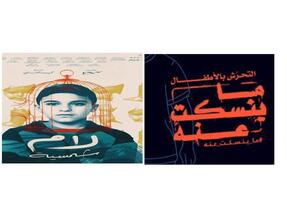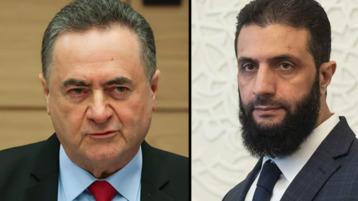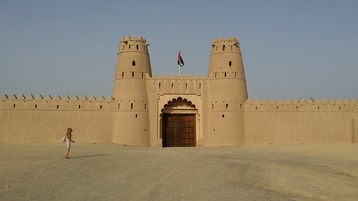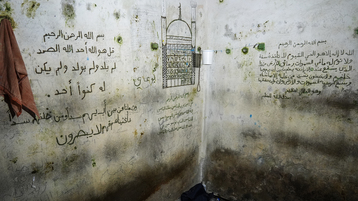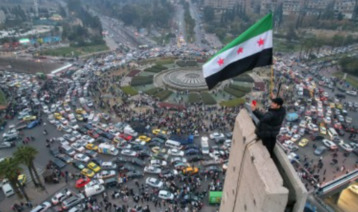-
The number of people killed in the uprising of Khuzestan province are on the rise.
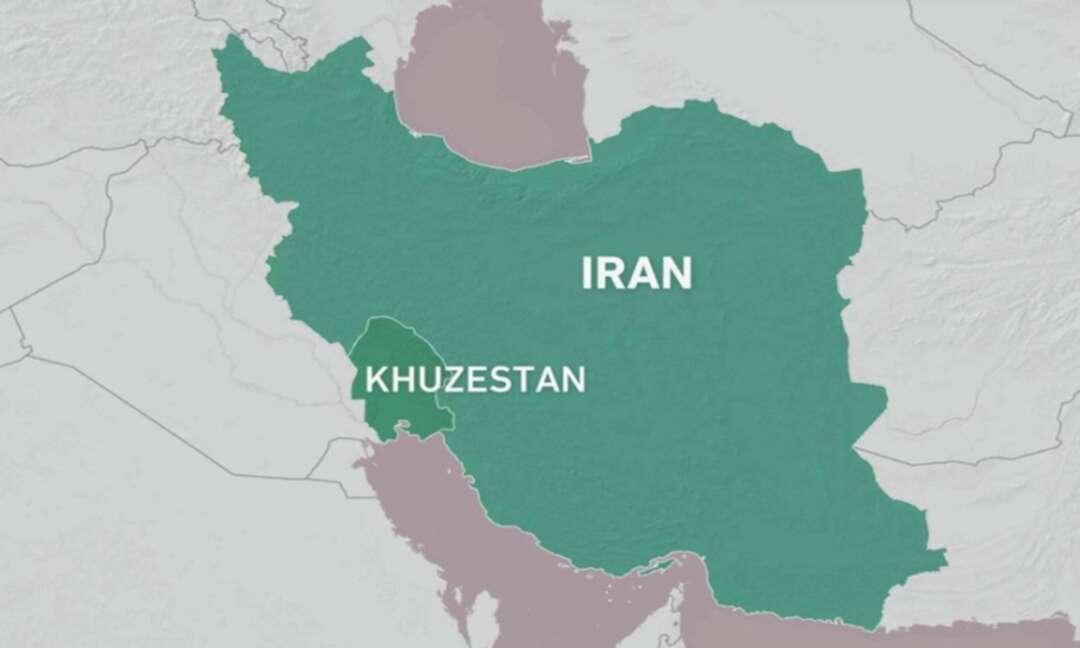
Currently, more than 50% of Iran's population live in absolute poverty and in very difficult conditions. On the other hand, the spread of Covid-19 and its high number of fatalities resulting from government corruption and mismanagement have added to the misery of the lower class of society. Although most government officials, their families, and those affiliated with them have been fully vaccinated, only about 7% of the Iranian population has been vaccinated with their first dose. According to reliable sources, the number of victims of this disease in Iran has now exceeded 336,000.
For these reasons the Iranian people unanimously boycotted the June 2021 presidential election to show their dissatisfaction and discontent with the regime. According to reliable sources inside Iran, close to 10% of the people casted their votes. In reality, and in the eyes of many analysts, people's boycott of the election could be translated into a referendum. Also, according to the regime itself, which is far from the truth, the voter participation in Tehran, with a population of over 8 million, was less than 26%.
But Khamenei ignored the poor result of the presidential election and called it an epic of people's support for the regime.
As a result, within a couple of days after the presidential election, the workers of oil, gas, and petrochemical refineries in different cities stopped working as a protest to their working conditions, their livelihood, and low wages, which are less than a third of the poverty line. Following them, farmers in Isfahan staged mass protests against the blockage of the Zayandeh Rood River, which has caused the destruction of their crops. And now, about a month after the sham presidential election, different cities of Khuzestan province are witnessing widespread protests.
The shortage of water in the province's rivers, which has been caused by the construction of numerous unregulated dams by companies affiliated with Iran's Revolutionary Guards, resulted in the loss of people's agricultural products and livestock in many villages. Even the drinking water has been cut off in many cities.
As a result, The youth in most of this province cities, such as Ahvaz, Susangard, Shousha, Mahshahr, Azadegan plain, Shadegan, Hamidiyeh, Zargan, Behbahan, Omidieh, Dezful, Izeh, Masjed Soleiman, and etc took to the streets and demanded the opening of the dams and flow of water in the rivers. But since the regime, as usual, ignored their demands gradually the slogans quickly became political and changed to "Death to the Dictator" and "Death to Khamenei."
But Khamenei, knowing that giving in to the demands of the people and retreating against them will lead to a series of other rightful demands by the people in other provinces, neither intends nor is capable of responding to these demands.
As always, and true with any other dictatorships, Khamenei resorted to repressive methods to bring the recent uprisings to an end, similar to the crackdown of widespread uprisings of November 2019, which resulted in the brutal killing of more than 1500 protestors and the arrest of more than 12,000 by the regime's security force).
To quell the uprisings in Khuzestan, the regime sent its security forces from the neighboring provinces, hoping to crack down on the protestors and bring it to an end.
Police and anti-riot forces have shot and killed/injured dozens in various cities of the province and have detained and imprisoned hundreds.
According to Amnesty International, "At least eight people" have been killed by security forces so far, but the actual number is undoubtedly higher.
UN High Commissioner for Human Rights Michelle Bachelet also called on the Iranian authorities to address the water crisis in Khuzestan instead of trying to "suppress the protesters."
The regime tried to justify its repressive actions by branding the insurgents as separatist and foreign forces. Also by spreading false news about the names of those killed and then by bringing some people to the television and announcing that the news of their deaths was falsely published by opposition groups, they tried to discredit the credibility of the news of the real victims, taking upper hand to further killings.
The regime also tried to cut off the communication of the people of this province with other areas by cutting off the internet network of this province. But its attempt failed to some degree, and the uprising spread to cities outside the province such as Khorramabad, Mashhad, Isfahan, Karaj, the capital Tehran and especially Tabriz the capital of Azerbaijan province. Tabriz is a very important city as historically it was the center point of the constitutional revolution (1905-1909) and the anti-monarchy revolution (1978-1979). So the regime is really afraid of any uprising in this city. But people of Tabriz, especially the youth, came to the streets in thousands in support of the people of Khuzestan and chanted “Neither Shah nor Khamenei, we are patriotic”.
The spread of the uprising to other provinces and especially to Azerbaijan caused the regime to fear a repetition of what happened in November 2019. Therefore, on the one hand, by opening the valves of the dams and flowing some water in rivers the regime pretended that it is solving the crisis, and on the other hand, by sending Pasdar Hossein Salami, commander of the Revolutionary Guards, and Ishaq Jahangiri, vice president of the regime; to the region, tried to reorganize its repressive forces and prepare for worse situations.
Now that Ebrahim Raisi as the head of the new government will take over on June 12, given his background and knowledge of the repression and massacre of 30,000 political prisoners in 1988, one can expect him to increase the suffocating atmosphere to suppress this uprising.
But, the majority of the Iranian youth who have nothing to lose and are sick and tired of this regime, and want a regime change, will not be silenced easily. So we should expect more uprisings in the near future in other cities of Iran.
by: Cyrus Yaqubi levant
Cyrus Yaqubi is a Research Analyst and Iranian Foreign Affairs Commentator investigating the social issues and economy of the Middle east countries in general and Iran in particular.
You May Also Like
Popular Posts
Caricature
BENEFIT Sponsors Gulf Uni...
- April 17, 2025
BENEFIT, the Kingdom’s innovator and leading company in Fintech and electronic financial transactions service, has announced its sponsorship of the “Innovation and Sustainable Technology Solutions Competition (GU - IST Solutions), hosted by Gulf University at its main campus.
This strategic sponsorship reflects BENEFIT’s active role in advancing technological innovation and fostering sustainable solutions to future challenges. It also seeks to empower Bahraini youth by enhancing their skills, capabilities, and competitiveness in innovation and solution development—contributing meaningfully to the broader goals of sustainable development across all sectors.
As part of BENEFIT’s active involvement in the competition, the company has announced that Hanan Abdulla Hasan, Senior Manager of Public Relations and Communication, will serve on the competition’s supervisory committee. Her upcoming participation reflects BENEFIT’s forward-looking commitment to championing academic and professional excellence.
Commenting on the occasion, Hanan Abdulla Hasan, Senior Manager of Public Relations and Communication at BENEFIT, said, “We are privileged to support this pioneering initiative, which aligns seamlessly with BENEFIT’s enduring commitment to fostering innovation and nurturing the potential of Bahrain’s youth. Our participation is rooted in a deep sense of social responsibility and a firm belief in the pivotal role of innovation in shaping a sustainable future. Through such platforms, we seek to empower the next generation with the knowledge, skills, and foresight required to develop impactful solutions that address future challenges, in line with the United Nations Sustainable Development Goals 2030.”
Dr. Aseel Al Ayash Dean of the College of Engineering in Gulf University commented, “We extend our sincere gratitude to BENEFIT for their generous sponsorship and support of the Innovation and Sustainable Technology Solutions Competition. This contribution plays an instrumental role in helping us achieve the strategic goals of this initiative, namely, cultivating a culture of innovation and sustainability, encouraging efforts that address the imperatives of sustainable development, and enhancing the practical and professional capabilities of our students and participants.”
The event will bring together a diverse spectrum of participants, including secondary school students, university undergraduates, engineers, industry professionals, entrepreneurs, academic researchers, and subject matter experts representing a wide range of disciplines.
The competition seeks to inspire participants to develop and present innovative, sustainable technologies aimed at addressing pressing environmental, social, and economic challenges. It encourages the formulation of business models that integrate advanced technological solutions with core principles of sustainability. Moreover, it serves as a platform for emerging leaders, entrepreneurs, and innovators to contribute to the advancement of the Sustainable Development Goals, promote the ethos of responsible technology, and demonstrate its transformative potential across various sectors.
Attendees will have the opportunity to view a series of project presentations submitted by participants, covering diverse areas such as eco-friendly product design, smart and sustainable innovations, renewable energy technologies, water conservation and management, waste minimisation and recycling, green architectural solutions, and sustainable transportation systems. Outstanding projects will be formally recognised and awarded at the conclusion of the event.
opinion
Report
ads
Newsletter
Subscribe to our mailing list to get the new updates!



